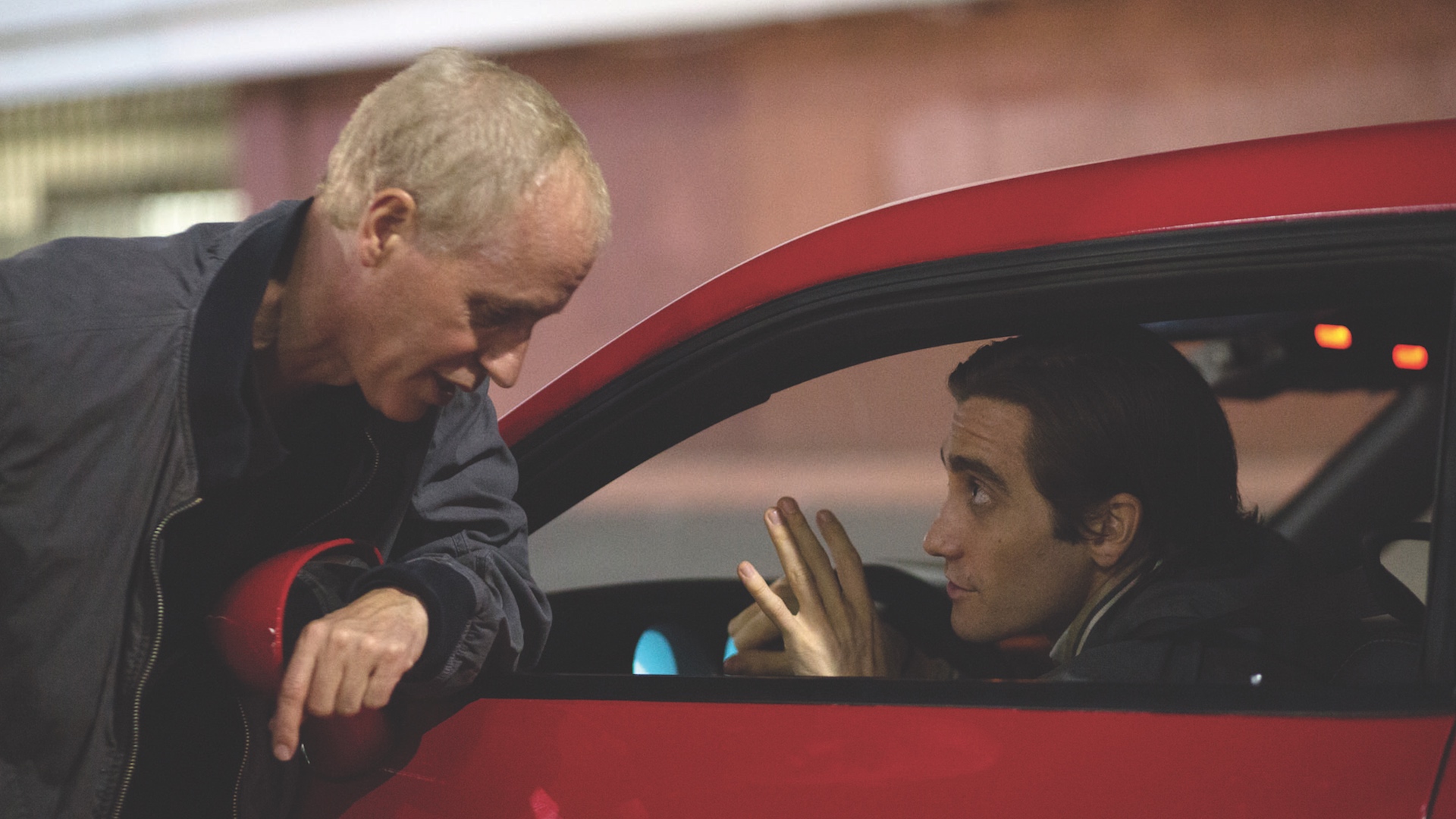BACKSTORY: An accomplished screenwriter (The Bourne Legacy, The Fall) from a decorated Hollywood family
FROM: Born in Los Angeles, raised in New York, and then back to Los Angeles, where he is currently based
YOU MIGHT KNOW HIM FROM: His knockout directorial debut Nightcrawler, which was nominated for Best Screenplay at the Academy Awards, and won the Independent Spirit Award for Best Screenplay and Best First Feature
NOW: Attached to write the screenplay for Stan Lee’s Annihilator, in addition to researching for another Los Angeles–set, “strong central character” film
After more than twenty years of professional screenwriting, Dan Gilroy is crossing between worlds. That doesn’t mean he’s left the pen behind, of course. Rather, for his most recent project—the critically lauded, sleeper-hit Nightcrawler—Gilroy took it upon himself to step into the directorial realm for the first time in his career in order to bring his vision of a terrifying, beautiful world into complete fruition.
As it were, the delayed transition of going from behind the writing desk to behind the camera is a move that happens to be in Gilroy’s blood. His father, Frank D. Gilroy, is a Pulitzer Prize–winning writer who himself waited until middle-age to direct, and his older brother, Tony Gilroy, did the same with Michael Clayton, his 2007 Oscar-winning directorial debut. And even as a family unit (including Dan’s twin brother, John, who edited Nightcrawler), they have proven to be a transitional bunch. “My father was from the East Coast and didn’t want us to grow up in California and get involved in the movie business, so he moved us all back to New York,” says Gilroy. “That worked out well.”
Speaking with a subdued New York accent from his home in Los Angeles, Gilroy recalls that he wasn’t particularly career-oriented growing up (“I had a vague idea when I got out of college that I would want to try to be a stuntman, of all things”), but after a stint working as a reporter at Variety, the screenwriting bug bit him, and off he went. “To me, [writing is] the perfect job. I like being in control of stories and moving things around and envisioning them, and it worked for me,” he explains. “It was really only within the last five years that I actually decided, ‘Hey, I guess I want to see my work as I see it.’”
“I remember a time when…pensions and job security were given. I’ve witnessed those things be taken away.”
With the stars properly aligned, Gilroy set out to tackle the job of directing his latest script, Nightcrawler, a taut, disturbing thriller about the freelance videographer market in Los Angeles TV News and a young sociopath, Lou Bloom (played by a brilliant Jake Gyllenhaal), who uses that market as a vehicle to assert his twisted entrepreneurial aspirations. Representing Gilroy’s “view of the world,” the film is an unabashedly bleak and cautionary tale, and one that, fittingly enough, has been brewing ideologically for a long time. “I remember a time when unions were strong, when the socio–economic divide wasn’t a headline because the disparity was so great, when wage actually meant something you could live on, when pensions and job security were given,” he reflects. “I’ve witnessed those things be taken away.”
Nightcrawler is a philosophical film, yes, but it’s also gorgeous and entertaining—the overall product of which betrays its designation as a debut directorial effort. Regarding his first-time success at the craft, Gilroy is quick to distribute credit amongst his crew, and emphasize the importance of preparedness, particularly in the developmental, preproduction phase: “I was of the mind of ‘I can’t prepare enough,’” says Gilroy. And though he speaks of the production itself, doesn’t that adage sound like it could apply to his entire life up until this point? FL









